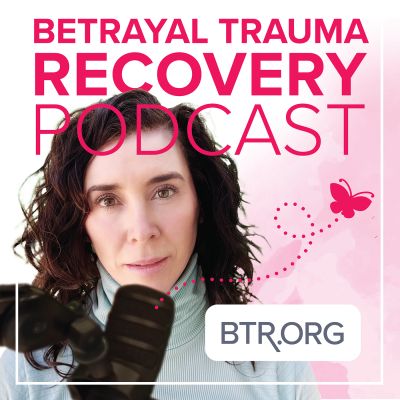btr.org - btr.org has daily, online Group and Individual Sessions for victims of emotional & psychological abuse and sexual coercion. For women experiencing pain, chaos, and isolation due to their husband’s lying, gaslighting, manipulation, porn use, cheating, infidelity, emotional abuse, and narcissistic abuse. Labeling a victim as "codependent" is a form of victim blaming. Pornography addiction / sex addiction are a domestic abuse issue. Narcissistic abuse is not a communication issue. We help women who are married, separated, or divorced heal through establishing emotional safety. If you suspect your husband is a narcissist, a pornography addict, or emotionally abusive, this podcast is for you. Every woman on our team has experienced betrayal trauma first hand. To learn more about Betrayal Trauma Recovery, visit BTR.ORG
https://www.btr.org/podcast/
episode 272: My Husband Says He’s Not Attracted To Me
When your narcissistic husband devalues you and you find yourself asking, "My husband says he's not attracted to me anymore - why?" it's time to surround yourself with support, learn more about narcissistic abuse, and seek safety.
Dr. Natalie Jones from A Date With Darkness Podcast is diving into this topic with Anne on the BTR.ORG Podcast - tune in and read the full transcript below for more.
It's NOT About You - It NEVER Was
Many victims, understandably, take this form of abuse very personally, and may seek to change themselves to meet the abuser's ever-changing standards of beauty.
This is particularly painful for BIPOC women, whose abusers attack not only temporary characteristics, like weight, but permanent characteristics, like race and culture.
But the truth is that it's not about your skin color, size, hair color, or facial features - the abuser is simply trying to control you.
Abusers Use Criticism to Control Victims
The abuser criticizes your physical features to control you. As long as you feel inadequate and permanently "less than", he can maintain the illusion of "power over" you.
Why? Because when abusers condition victims to believe that they're "too much" or "not enough", victims focus on becoming "right" for the abuser, rather than on seeking safety from the abuser's behaviors.
How Do I Heal From This Form of Abuse?
The devastating pain that comes from this form of narcissistic abuse can feel impossible to heal from at times - the words and smirks, put-downs, and jeers can sear themselves into the memories of victims.
However, healing IS possible - but not until safety is achieved.
Narcissistic abusers are particularly skilled at making their opinions seem like facts - and that "everyone else" feels the same way that they do - when victims seek safety from the abuser, they often begin to realize that the abuser is a liar - that reality is actually the complete opposite of what the abuser claimed it to be.
BTR.ORG Is Here For You
At BTR.ORG we know that healing can feel like a far-off dream - but we are here for you as you begin your journey to healing. Attend a live, daily BTR.ORG Group Session as you begin your journey to healing.
Full Transcript:
Anne (00:00):
Welcome to BTR.ORG. This is Anne. On today's, I have Dr. Natalie Jones. She is a licensed psychotherapist. She's the creator of A Date with Darkness Podcast, and I have been a guest on her podcast, and so I wanted her to join us here. Dr. Jones received her Masters in clinical counseling psychology and her Doctorate in clinical psychology. Dr. Jones is specifically known for helping professional people of color heal from narcissistic abuse. Welcome, Dr. Jones.
Dr. Natalie Jones (03:28):
Thanks for having me on.
Dr. Natalie Jones Helps BIPOC Folks Heal From Narcissistic Abuse
Anne (03:30):
As you're known for helping professional people of color heal from narcissistic abuse, can you talk about why this is your specific interest?
Dr. Natalie Jones (03:39):
It started out with my graduate school dissertation, and my dissertation study was on African American women who were psychologically abused by their parents. While growing up in that study, I looked at several different elements of coercive control, and I do think that there's different elements of narcissism in people of color versus the general types of narcissistic abuse. So for example, especially with women of color, black women in in particular,
